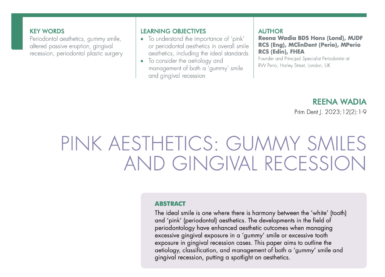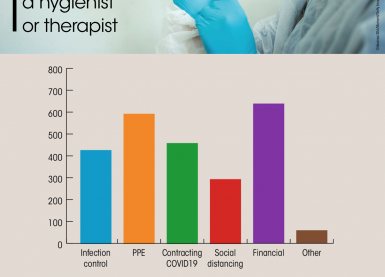June 22, 2021

- Plaque may be required to get destructive periodontitis, but it is not sufficient. Psychosocial factors i.e. depression, anxiety, stress, coping and emotional intelligence can have direct effects on disease susceptibility.
- A key study by Genco 1999 showed the relationship of stress, distress and inadequate coping behaviours to periodontal disease. The study included 1426 subjects aged 25-74 years. There was no significant effect of daily hassles or total number of negative life events. It was the coping behaviour that made the difference: emotion-focused (rather than problem-focused) doubled the risk of periodontal disease.
- Other recent evidence also suggests that coping mechanisms and emotional intelligence may be more important than stress per se in determining risk of periodontitis and treatment outcomes.
- Response to stress may be affective, physiological, behavioural and/or cognitive. For example, a behavioural response to stress may mean increased smoking, increased alcohol, change in diet, frequent shifts in task focus, decline in health protective behaviours (including oral hygiene regime) and decrease in coping behaviours. Physiological changes during stress: perturbing stressors may lead to unstable microbial communities and dysbiosis i.e. a state of impaired homeostasis with deleterious effect on health. A cognitive response would include difficulty concentrating, forgetfulness etc.
- There are technical difficulties in showing the effects of stress on periodontal disease including the measurement of stress, timing and the fact that periodontal disease today is a measure of the disease over a prolonged period of time. Most of evidence is cross-sectional and typically need multivariate stats to test the interaction of different factors.
- When considering psychological interventions/changing behaviour: think more than simply giving knowledge, need to make the behaviour the easiest option, enhance self-efficacy through identifying previous success and creating small changes that accumulate, encourage planning, use media to provide demonstrations and provide feedback.
- When stressed, some people focus on the emotion and others on the problem. Mindfulness can help in changing the appraisal of the problem.
- GPS is an evidence-based model for psychological interventions and includes: G – Goal setting; P – Planning; S – Self-monitoring.
Learn more by reading some of our other articles here.



